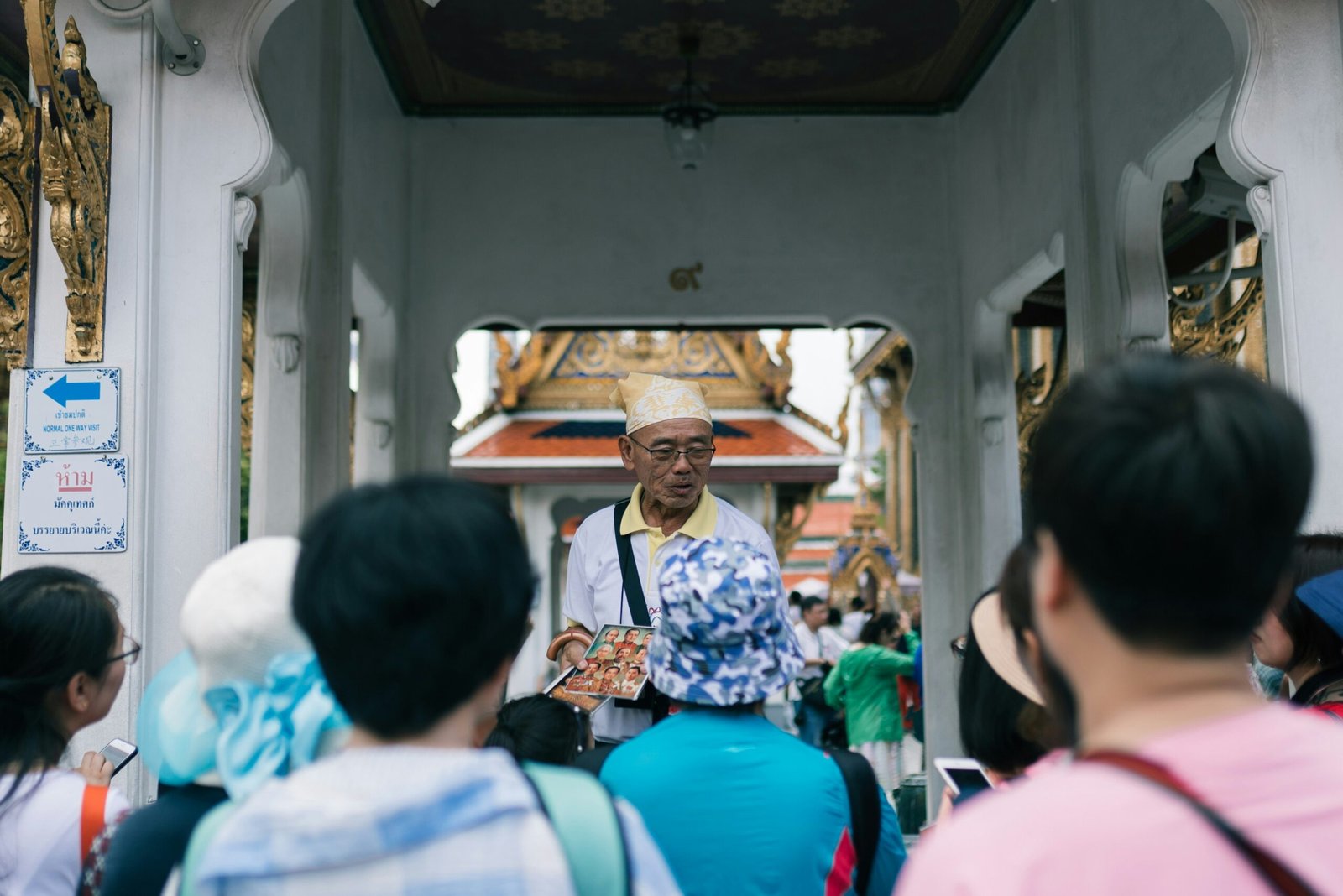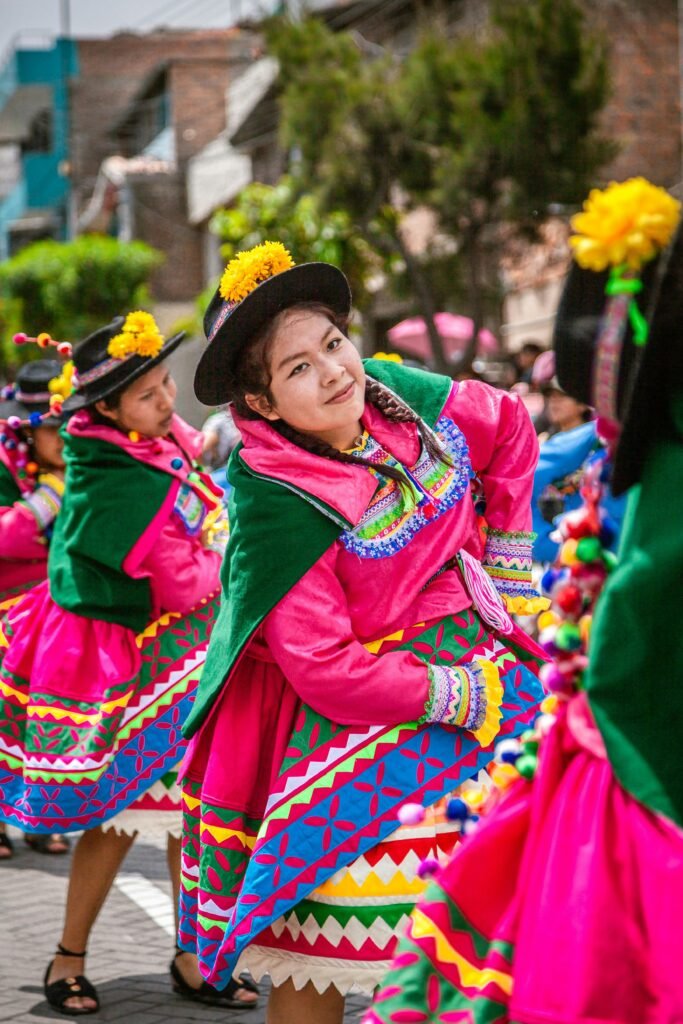Introduction to Cultural Respect
Respecting local cultures is a fundamental aspect of engaging with diverse communities, whether while traveling or interacting within multicultural environments. Cultural respect encompasses recognizing and valuing the traditions, beliefs, customs, and practices that define different communities. It is essential to approach such interactions with an open mind, as cultural differences contribute significantly to the richness of human experience.

One of the primary reasons cultural respect is important lies in the potential for fostering understanding and connection among individuals from diverse backgrounds. When travelers and local residents engage with one another respectfully, it opens doorways to enriching conversations, shared experiences, and mutual learning. This cultural exchange not only enhances personal experiences but also contributes to the broader goal of harmony and coexistence in an increasingly global society.
Additionally, exhibiting genuine respect for local cultures can lead to deeper relationships built on trust and appreciation. It allows individuals to move beyond surface-level interactions and connect with the authentic essence of a community. Understanding local customs—such as traditional greetings, dress codes, or social etiquette—can signify to local residents that one values their heritage. This fosters goodwill, decreases the likelihood of misunderstandings, and promotes a sense of belonging.
Moreover, respecting local cultures can also have meaningful implications for sustainable tourism. When tourists engage with communities in a culturally sensitive manner, they contribute to the preservation of local traditions and support local economies. This kind of mindful engagement not only benefits travelers by providing unique, immersive experiences but also bolsters the communities that host them, thereby promoting a cycle of respect and reciprocity.
Understanding Cultural Context
Before embarking on a journey to a foreign destination, it is crucial to gain an understanding of the cultural context surrounding that locale. Each culture possesses unique norms, values, and customs that stem from its historical, social, and environmental backgrounds. By conducting thorough research prior to your visit, you can better appreciate these differences and avoid potential misunderstandings that may lead to unintentional offense.

One effective method of gaining insight into a new culture is to explore its history and traditions. This can be accomplished through reading books, articles, and visiting reputable websites that focus on the area you intend to visit. Online platforms often provide valuable information on cultural practices, social structure, and even etiquette that is appropriate in everyday interactions. Understanding the underlying context can enhance your travel experience, enabling you to engage more meaningfully with locals.
In addition to written resources, visual media such as documentaries, films, and even social media accounts dedicated to the culture can offer a nuanced understanding of local customs and values. Engaging with these materials allows for a wider perspective and a deeper appreciation of the cultural nuances that define a community.
Moreover, taking time to learn a few key phrases in the local language can demonstrate respect and willingness to engage with the native culture. This gesture can foster goodwill and lead to enriching interactions with residents. It is also advisable to familiarize yourself with specific customs regarding greetings, dining etiquette, and interpersonal communication. A nuanced grasp of these elements leads to a more authentic and respectful engagement during your travels.
Therefore, approaching new cultures with an informed perspective is essential. This not only enhances your travel experience but also fosters mutual respect between visitors and the local communities they explore.
Embracing Local Customs
When exploring a new destination, understanding and embracing local customs can significantly enhance your travel experience. Engaging with local cultures not only enriches your journey but also fosters respect and connection with the communities you visit. One of the fundamental aspects to consider is the greeting customs, which vary greatly from one culture to another. For instance, in Japan, a polite bow demonstrates respect, while in many Western countries, a firm handshake is the norm. As a traveler, taking the time to learn these simple gestures can promote goodwill and foster positive interactions.
Dining etiquette is another vital area where travelers can easily adapt to local practices. In many Asian cultures, sharing food from communal dishes is common, and using chopsticks correctly can show appreciation for the local culinary traditions. Conversely, in some Middle Eastern countries, dining with the right hand is considered respectful, while the left hand is often viewed as unclean. It is essential to familiarize yourself with such dining customs to enjoy a more immersive experience while also honoring local traditions.
Additionally, understanding local dress codes plays a crucial role in demonstrating respect for the culture you are visiting. In various regions, especially those with strong religious ties, dressing modestly is greatly appreciated. For instance, women may be expected to cover their shoulders and knees, while men may benefit from avoiding overly casual attire when visiting religious sites. Adapting your clothing choices to align with local expectations can significantly enhance your engagement with the community.
Incorporating these customs into your daily interactions can initially feel daunting, but with a willingness to learn and adapt, you can quickly immerse yourself in the local culture. By embracing local customs, you not only respect the traditions of the place you are visiting but also invite more meaningful connections with its people.

Effective Communication Strategies
Respecting local cultures often begins with effective communication, which plays a crucial role in fostering mutual understanding and connection. One fundamental approach is to learn basic phrases in the local language. Although you may not achieve fluency, even simple greetings or polite expressions can significantly enhance your interactions. Most locals appreciate the effort made to communicate in their language, which demonstrates respect for their culture. Online resources, language apps, or local language classes can serve as valuable tools for acquiring these phrases.
Additionally, utilizing gestures can facilitate communication, particularly in regions with diverse dialects or linguistic barriers. However, it is essential to research and understand the appropriateness of specific gestures, as they may carry different meanings in different cultures. An innocent gesture in one culture might be perceived as offensive in another. Therefore, observing local customs and mimicking what is acceptable can provide guidance on how to effectively incorporate gestures into your interactions.
Furthermore, understanding non-verbal cues can enhance your communication ability. Body language, eye contact, and facial expressions often convey more than spoken words. In certain cultures, prolonged eye contact may be regarded as sincere and engaging, while in others, it could be interpreted as a challenge to authority or personal space. Observing these cultural differences and adapting your behavior accordingly fosters a respectful atmosphere. Showing awareness of how your non-verbal cues may be received allows for more harmonious interactions with individuals from diverse backgrounds.
By adopting these communication strategies—learning basic language phrases, using appropriate gestures, and comprehending non-verbal signals—you can create meaningful connections and demonstrate your respect for local cultures. Engaging with others in their own language and understanding their communication styles contributes significantly to fostering appreciation for diversity in our increasingly interconnected world.
Showing Appreciation and Gratitude
When traveling to new destinations, it is essential to express genuine appreciation for the local culture and hospitality. Demonstrating gratitude is not merely a matter of politeness; it enriches interactions and fosters a deeper connection with the community. One simple yet impactful way to convey your appreciation is by offering sincere compliments. Compliments about local cuisine, craftsmanship, or cultural performances can significantly uplift the spirits of those you meet, showcasing that you value their contributions to the cultural landscape.
It is also beneficial to participate in local traditions and celebrations. Engaging in cultural activities, whether it’s joining in a festival, trying out traditional dances, or learning a few phrases of the local language, can enhance your travel experience while affirming your respect for local customs. This involvement not only demonstrates an appreciation for the culture but also encourages mutual understanding and respect.
Supporting local businesses is another powerful method to show gratitude. Whether purchasing handmade goods, dining at family-owned restaurants, or hiring local guides, these actions help sustain the community’s economy and preserve its unique cultural identity. By choosing to invest in local enterprises, travelers contribute to the livelihood of local artisans and service providers, which allows them to continue sharing their heritage with visitors.
Additionally, expressing gratitude through small gestures can leave a lasting impression. A simple “thank you” in the local language or sharing a moment to listen to a local’s story can significantly enhance interaction quality. These gestures illustrate not just an appreciation for the hospitality received but also a commitment to understanding and valuing the richness of cultural diversity. As a result, travelers foster a respectful relationship with the communities they visit, emphasizing the importance of gratitude in cultural exchange.
Navigating Cultural Differences Without Stress
Navigating cultural differences can often elicit feelings of anxiety or apprehension, especially for individuals stepping into unfamiliar environments. The fear of committing cultural faux pas may be prevalent, yet understanding that such misunderstandings are a natural part of the intercultural experience can significantly alleviate this stress. Cultivating a mindset of openness, humility, and humor can be highly beneficial when engaging with diverse cultures.

Firstly, it is essential to approach interactions with an attitude of humility. Recognizing that one is not an expert in every culture allows for a more respectful dialogue. This acknowledgment can help lower tensions and foster a more genuine exchange. For example, if someone inadvertently misuses local customs or phrases, a simple and sincere apology often paves the way for understanding. Many cultures appreciate the effort to engage even if mistakes are made, as it demonstrates a willingness to learn and connect.
Moreover, humor can serve as a valuable tool in bridging cultural gaps. It can ease awkward situations and signal genuine interest rather than insensitivity. Utilizing light-heartedness when navigating misunderstandings helps break down barriers and creates a more relaxed atmosphere for everyone involved. This approach softens the impact of any errors and allows for shared laughter, creating bonds that transcend cultural differences.
Lastly, adopting a willingness to learn from mistakes is paramount. Engaging with local individuals can provide a wealth of knowledge about their traditions and customs, and being receptive to feedback is crucial. Taking the initiative to learn a few local phrases or customs before visiting a new place can also help demonstrate respect and eagerness to engage in cultural exchange. By focusing on these strategies, individuals can navigate cultural differences with greater confidence and composure, transforming potential stressors into enriching experiences.
Building Genuine Relationships
One of the most impactful ways to respect local cultures and appreciate diversity is by building genuine relationships with the people you encounter. Engaging with locals can lead to deeper understanding and enrich your travel experiences. To foster such connections, it is essential to approach interactions with empathy, openness, and a willingness to learn. Start by showing interest in local customs, traditions, and the daily lives of those you meet. This not only conveys respect but also establishes a foundation for meaningful conversations.
When interacting with individuals from different cultural backgrounds, it is crucial to listen actively. This involves giving others your full attention and responding thoughtfully to what they share. Demonstrating genuine curiosity about their perspectives and experiences can help bridge cultural gaps and establish trust. For instance, asking about local values, holidays, or community events can lead to richer exchanges and insights that you would not have encountered otherwise.
Additionally, participating in local activities or community events can create opportunities for authentic interactions. Engaging in workshops, festivals, or volunteer opportunities allows you to connect with others on a personal level while demonstrating appreciation for their culture. These shared experiences often lead to friendships that transcend language barriers and cultural differences.
Having a respectful attitude and an open heart lays the foundation for forming connections with local communities. By approaching these relationships without preconceived notions or stereotypes, you are more likely to forge bonds that are both rewarding and enlightening. In essence, building genuine relationships contributes to a greater understanding of the richness inherent in diversity, allowing you to truly value and respect local cultures.
The Role of Empathy in Cultural Respect
Empathy serves as a fundamental bridge in fostering understanding and respect for diverse cultures. It allows individuals to identify and relate to feelings, perspectives, and experiences that may be vastly different from their own. When engaging with various cultures, empathy plays a critical role in enhancing respectful interactions. Rather than merely observing social norms and practices from a distance, employing empathy encourages active participation and genuine engagement.
One of the key components of empathy is active listening. This involves being fully present in conversations, recognizing emotional cues, and demonstrating an openness to understanding the beliefs and values of others. By prioritizing active listening, individuals can move beyond superficial interactions, delving deeper into the nuances that encapsulate a culture. This habit fosters a welcoming environment, where others feel valued and understood.
Curiosity also amplifies the role of empathy in cultural respect. A curious mindset drives individuals to seek knowledge about cultural practices, traditions, and histories. This inquiry cultivates a respectful appreciation for the richness inherent in diverse cultures. By exploring cultural differences with an open heart and mind, individuals contribute to a larger narrative of harmony and mutual respect.

Approaching new experiences with empathy significantly enhances one’s ability to navigate cultural complexities. Rather than perceiving differences as barriers, seeing them as opportunities for growth promotes a more inclusive attitude. Empathy allows individuals to reflect on their own biases and assumptions, ultimately enriching their interactions with others. In essence, empathy is a transformative force that not only deepens one’s understanding of cultural diversity but also fosters a more respectful and harmonious society.
Conclusion: The Joy of Cultural Exchange
In navigating an increasingly interconnected world, engaging with diverse cultures presents a remarkable opportunity for personal growth and enrichment. Respecting local customs, traditions, and practices not only enhances our travel experiences but also fosters deeper connections with others. Embracing cultural exchange is less about assimilating into another’s way of life and more about appreciating the richness that diversity brings to our global community.
When we approach new cultures with an open mind and a respectful attitude, we break down barriers and build bridges. Each interaction becomes a valuable learning experience that broadens our understanding and appreciation of human life in its myriad forms. By participating in local festivals, learning the language, or simply indulging in traditional cuisine, we cultivate an authentic bond that transcends superficial encounters. These moments of shared joy remind us that, while our backgrounds may differ, our fundamental experiences as human beings and our desires for connection are universally shared.
Cultural respect should never be seen as a mere obligation or an imposition. Instead, it is an enjoyable journey that encourages us to step outside our comfort zones. This adventure allows us to celebrate our differences while recognizing our shared humanity. As we adopt a mindset of curiosity and eagerness to learn, we contribute to a more harmonious world, characterized by mutual respect and understanding. Each positive interaction not only enriches our lives but also contributes to a global tapestry woven with the threads of various cultural narratives.
Ultimately, engaging with diverse cultures is about joy, discovery, and connection. The richness of the world around us flourishes through our efforts to respect, understand, and embrace cultural diversity. In doing so, we not only grow as individuals but also contribute positively to the global community we are all a part of.
